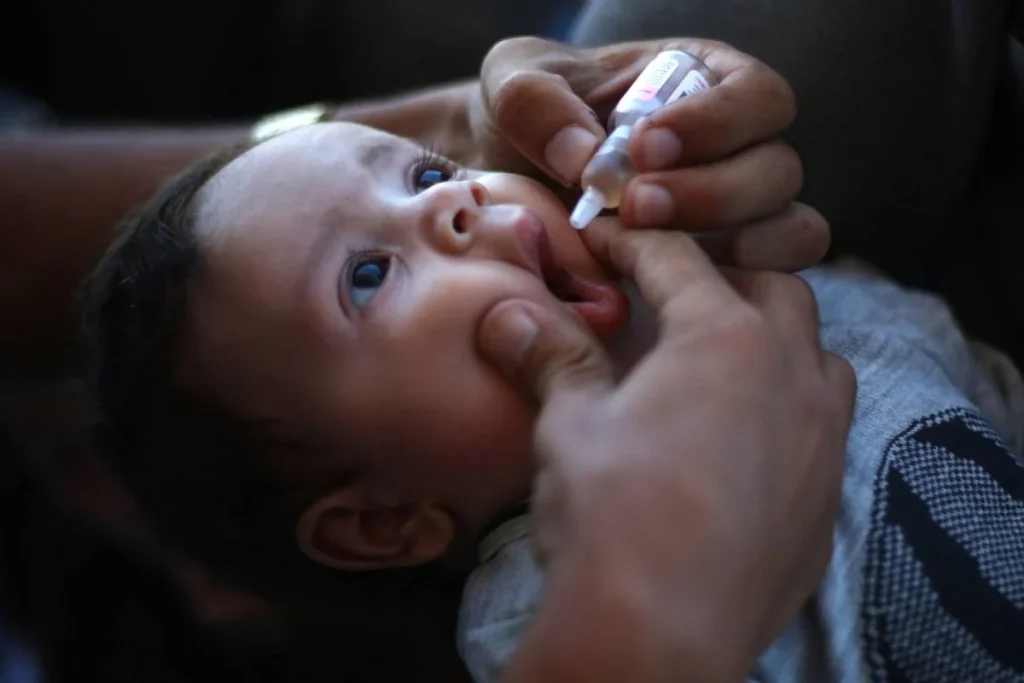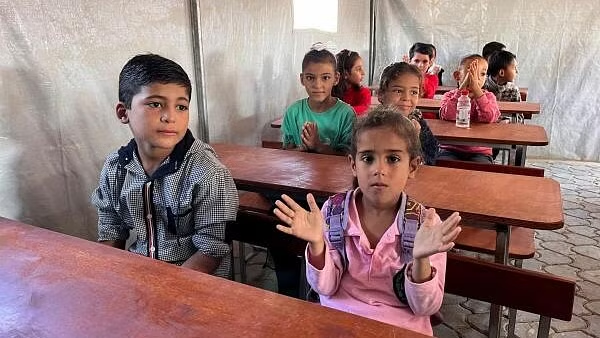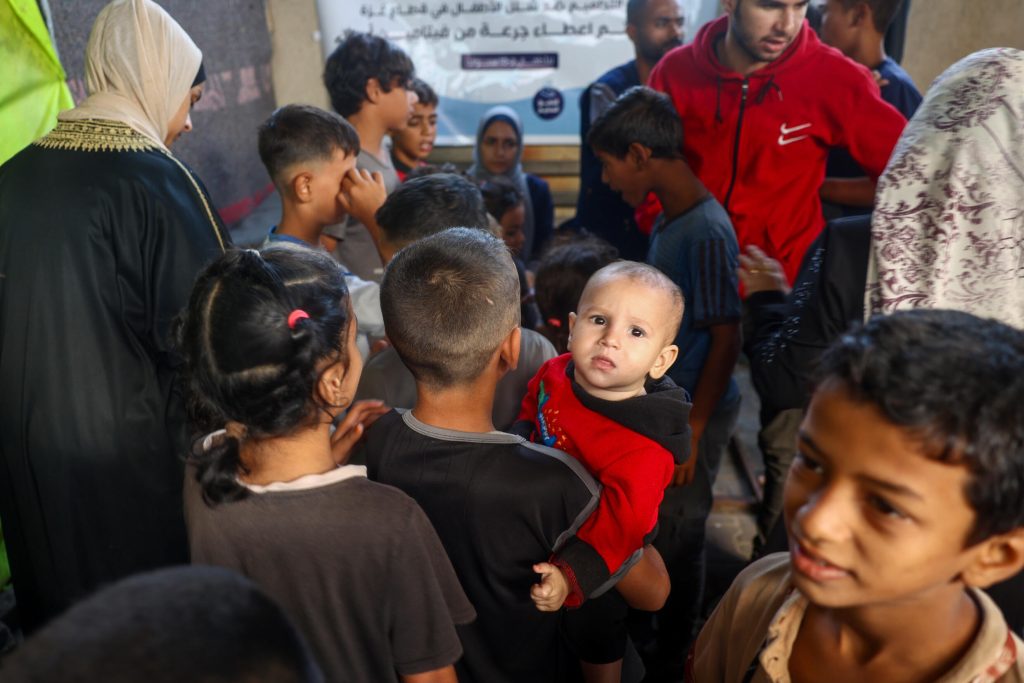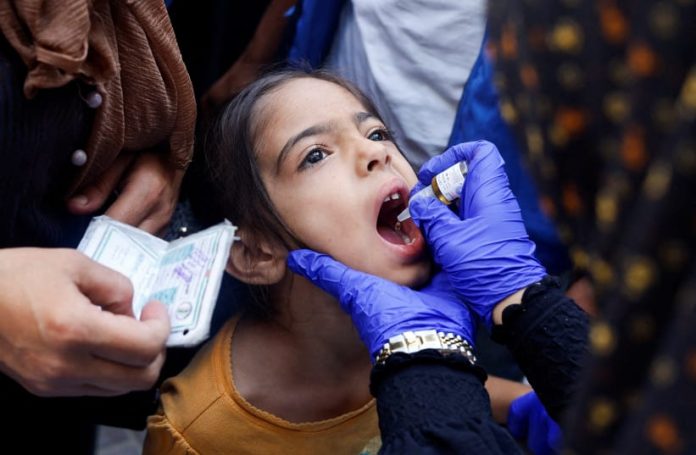Polio Vaccination Campaign Resumes Amid Crisis in Nothern Gaza.
The World Health Organization (WHO) has announced the resumption of a critical two-stage polio vaccination campaign in northern Gaza, marking the final phase of the initiative. This vital health endeavor is crucial as Gaza grapples with a dire humanitarian situation exacerbated by ongoing conflict and displacement. The second phase of the vaccination drive was initially postponed in October due to intense Israeli bombardments and severe access limitations in the region.
In August, Gaza reported its first case of polio in 25 years, resulting in paralysis for a baby boy and highlighting the urgent need for vaccination efforts in the territory. Polio, a contagious viral disease, primarily affects children and can lead to lifelong paralysis. The disease has been largely eradicated in many parts of the world due to widespread vaccination; however, localized outbreaks can occur, particularly in regions with inadequate immunization coverage.
In response to the outbreak, WHO initiated the vaccination campaign to safeguard the health of children in Gaza. The first phase of this campaign successfully vaccinated over 559,000 children under 10 years old across southern, central, and northern Gaza from September 1 to September 12, with local humanitarian pauses facilitating the efforts.

The current vaccination campaign is set to run for three days and aims to administer a second dose of the oral polio vaccine to approximately 119,000 children. However, the situation in northern Gaza remains precarious. WHO officials have reported that about 15,000 children in towns such as Jabalia, Beit Lahia, and Beit Hanoun are still inaccessible due to ongoing conflict, which significantly undermines the effectiveness of the vaccination initiative.
The WHO expressed concerns that achieving the target of vaccinating 90% of children with at least two doses is increasingly unlikely due to these access constraints. Medical experts have stressed that delays in administering the second dose could jeopardize efforts to halt the transmission of polio, making the campaign all the more urgent in light of the recent outbreak.
The situation in Gaza is dire, with humanitarian organizations describing conditions as “apocalyptic.” Following the resumption of conflict after Hamas’s attack on southern Israel on October 7, 2023, the civilian population has faced devastating consequences. Hundreds have been killed since the Israeli military launched a ground offensive in northern Gaza on October 6, targeting areas believed to harbor Hamas fighters.
The WHO reported that at least 100,000 people have been forced to evacuate from northern Gaza toward Gaza City in search of safety. This mass displacement has compounded the already critical humanitarian crisis, with severe shortages of food, water, and medical supplies affecting those remaining in the region.
UN agencies have released statements emphasizing the urgent need for increased humanitarian assistance to address the worsening conditions. The UN human rights chief recently warned that the conflict has entered its “darkest moment,” with the entire population in northern Gaza at imminent risk of dying from disease, famine, and violence.

In response to the deteriorating situation in Gaza, the United States has urged Israel to increase humanitarian aid into the region. As deadlines loom for aid provision, the U.S. envoy to the UN emphasized that Israel’s verbal commitments must be matched by action, highlighting the urgent need for tangible support for the beleaguered population.
The US has warned that failure to boost humanitarian efforts could result in cuts to American military assistance to Israel. This reflects a growing recognition of the importance of addressing the humanitarian needs of civilians affected by the conflict, as well as the necessity of facilitating vaccination campaigns against diseases such as polio.
The situation in Gaza underscores the critical role of vaccination campaigns in protecting vulnerable populations, particularly in conflict-affected areas. Polio vaccination is essential to preventing outbreaks and safeguarding public health, especially for children who are most at risk of the disease.
Immunization efforts are often disrupted in conflict zones, making it crucial for international organizations to adapt strategies and navigate complex logistical challenges. In Gaza, the WHO and other humanitarian organizations must work diligently to ensure that vaccination campaigns can proceed despite the ongoing violence and instability.
The challenges faced by the WHO and other organizations in implementing the polio vaccination campaign in Gaza are significant. Access to affected communities remains a critical barrier, with ongoing military actions and humanitarian constraints hindering efforts to reach all children in need of vaccination.
As the current campaign unfolds, it is essential for humanitarian agencies to work collaboratively with local stakeholders and international partners to facilitate access to communities in need. Innovative strategies may be required to ensure that vaccination efforts are not hampered by the ongoing conflict and that children in Gaza receive the protection they need against polio and other preventable diseases.
The international community must also recognize the interconnectedness of health and humanitarian issues in conflict zones. Providing humanitarian aid, including vaccines, medical supplies, and nutritional support, is vital to addressing the immediate needs of affected populations while laying the groundwork for long-term health improvements and disease prevention.

The resumption of the polio vaccination campaign in Gaza represents a critical step in protecting children from a potentially devastating disease amidst a humanitarian crisis. As WHO and other organizations strive to vaccinate vulnerable populations, the challenges of access and ongoing conflict must be navigated with care.
The situation in Gaza serves as a stark reminder of the importance of vaccination campaigns in safeguarding public health, particularly in regions facing instability and violence. As efforts continue to combat the polio outbreak, the global community must rally to support humanitarian initiatives and ensure that children in Gaza have access to life-saving vaccines, even in the face of adversity.
By prioritizing vaccination efforts and addressing the broader humanitarian crisis, there is hope for a healthier future for the children of Gaza and a stronger commitment to protecting public health in conflict-affected regions worldwide.




